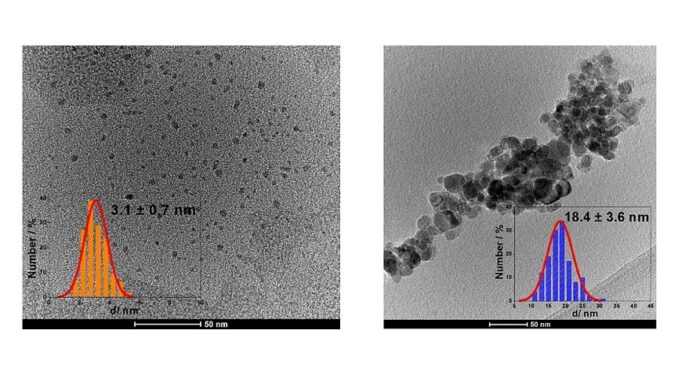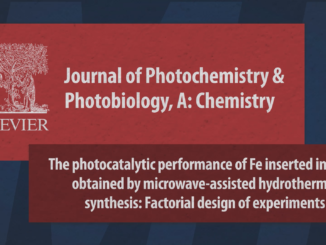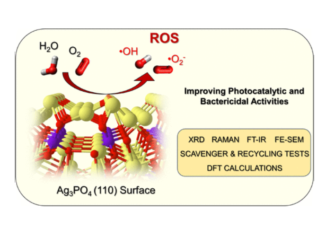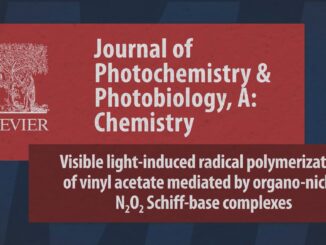
Preparation of a composite sensor based on a fluorescent and magnetic molecular imprint polymer for metronidazole extraction–detection
Abstract: We developed a metronidazole (MNZ)-selective sensor, combining magnetic and fluorescent molecularly imprinted polymers (MFMIP) with a non-imprinted reference composite (MFNIP). Using isothermal titration calorimetry (ITC), we optimized the MNZ-to-APTES ratio during polymerization, obtaining a specific MNZ-APTES bonded complex (Kb = 2.575 × 103 L/mol, ΔH° = −1.079 kJ mol−1, TΔS° = 18.389 kJ mol−1, and ΔG° = −19.468 kJ mol−1). The MFMIP composite, incorporating Fe3O4@TEOS magnetite nanoparticles and CdTe@TGA quantum dots, exhibited cavity-specific interactions with MNZ, as confirmed by surface plasmon resonance (SPR) studies. Compared to MFNIP, the MFMIP sensor demonstrated superior selectivity in water samples (5–60 μM, with LOD and LOQ values of 1.28 and 5.00 μM), and even in the presence of interferents. In addition, the use of CdTe quantum dots enabled real-time analysis via Stern–Volmer quenching mechanisms without complex sample preparation. In conclusion, our MFMIP sensor offers sensitive and selective MNZ detection. It presents practical advantages, including real-time analysis and ease of handling, making it a promising extraction–determination system for trace concentrations of MNZ.
Author(s): Laís Mendes Alvarenga; Cristiane dos Reis Feliciano; Bruno Giordano Alvarenga; Hauster Maximiler Campos de Paula; Yara Luiza Coelho; Luis Henrique Mendes da Silva; Luiz Fernando Gorup; Mariane Gonçalves Santos; Luciano Sindra Virtuoso
Journal of Molecular Liquids
Published: 15 November 2023, Volume 390, Part A, 123027
DOI: https://doi.org/10.1016/j.molliq.2023.123027
CDMF
The CDMF, hosted at the Federal University of São Carlos (UFSCar), is one of the Research, Innovation and Dissemination Centers (RIDC) supported by the São Paulo State Research Support Foundation (Fapesp), and also receives investment from the National Council Scientific and Technological Development (CNPq), from the National Institute of Science and Technology of Materials in Nanotechnology (INCTMN).




